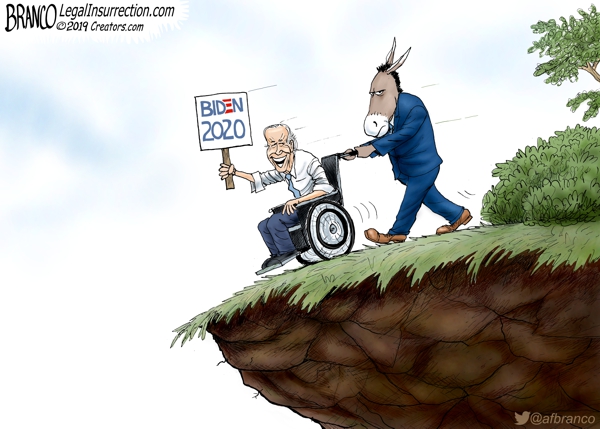YOUNGER PALESTINIANS MORE MODERATE ON TACTICAL ISSUES, BUT NOT ON LONG-TERM PEACE WITH ISRAEL by
David Pollock PolicyWatch 3175
September 6, 2019
A recent survey suggests an immediate opening for Washington to promote certain reforms, but real reconciliation still looks like a distant dream.
READ THIS ITEM ON OUR WEBSITE
A detailed survey in the West Bank and Gaza this summer indicates that younger Palestinians have somewhat more moderate views than their elders on various current issues—though not on long-term ones. Respondents age 18-30 expressed a marginally greater interest in economic progress, internal political breakthroughs, personal contacts with Israelis, the Trump peace plan, and similar matters. Yet only around one-third of them said they favor permanent peace with Israel—about the same minority percentage as respondents over 30. So the data give no grounds to imagine that a generational shift or the mere passage of time alone will improve the prospects for Israeli-Palestinian reconciliation at the grassroots level.
YOUNG AND OLD SHARE MANY HARDLINE VIEWS
Among the many surprises in this poll, conducted in June-July by the Palestine Center for Public Opinion, is the relatively high consistency of views among younger and older Palestinians regarding a wide range of political matters. On most of the survey’s forty questions, only a few statistically insignificant percentage points separate the two generations, apart from some of the current issues described above.
Overall, then, this younger generation of Palestinians appears to be neither more moderate nor more radical than their elders, and neither more secular nor more religious. For example, the overwhelming majority of all respondents (nearly 90%) said that religion is important in their lives.
One modest variation in this realm concerns Gazan attitudes toward the Muslim Brotherhood. In that territory, 54% of respondents over 30 expressed support for the Islamist group, compared to 41% among younger adults. Similarly, 62% of older respondents in Gaza said that Hamas should be allowed to operate freely in the West Bank, compared to around half among the younger generation.
Also mostly consistent across generations, though by a much narrower majority, was rejection of permanent peace with Israel. Asked if a two-state solution should be “the end of conflict with Israel,” just 34% of young West Bank respondents answered yes; the proportion was even lower among older residents (25%).
In Gaza, overall opinions on this and many related issues were somewhat more moderate, but the generational difference was reversed there: 38% of young Gazan respondents said that a two-state solution should end the conflict, while 46% of their elders agreed with that ideal. Similarly, while 41% of young Gazans would recognize Israel as “the state for the Jewish people” if that would help Palestinians obtain their own state, this figure unexpectedly rose to 56% among older Gazans.
GAZANS LESS POLITICIZED
One startling difference did emerge from this survey—not between generations, but between West Bankers and Gazans. Respondents were asked to what extent they agreed or disagreed with this provocative statement: “The Palestinian-Israeli conflict is mostly just for politicians or old people, and I simply don’t think about it very much.” In the West Bank, only one-quarter agreed even “somewhat” with that proposition, but in Gaza, the figure doubled to 52%. Also surprising was the parity between younger and older residents on this seemingly age-related question.
The explanation for these highly counterintuitive findings almost certainly lies in the fact that Gazans have had little daily contact with Israelis since the 2005 withdrawal of soldiers and settlers. Their situation is a sharp contrast to conditions in the West Bank, where Israeli soldiers, settlers, and checkpoints are a constant reminder of the conflict.
YOUNGER GENERATION MORE PRAGMATIC ON SHORT-TERM ISSUES
As mentioned earlier, some significant generational differences emerged on more immediate issues, particularly relations with Israel, with the Fatah and Hamas governments, with other Arabs, and with the United States. First, respondents age 18-30 were more likely to prioritize internal political reform over other political goals, including “resistance” against Israel. Given a list of five possible priorities, half of this age group chose “holding new elections and making our government more effective and less corrupt.” That option scored noticeably lower among older Palestinians: 35% in the West Bank and 38% in Gaza.
The generations also diverged a bit in their attitudes toward Washington, especially in the West Bank. Young respondents there were somewhat less opposed to certain U.S. policies, and somewhat less aware of others. For example, just 29% favored rejecting the Trump peace plan outright even before it is officially released, compared to 37% of older respondents. Similarly, when asked to choose between policy options that included “More American economic aid,” “More pressure on Israel,” “Stay out of our affairs altogether,” and other choices, 22% of younger West Bankers selected more aid, compared to only 13% of older respondents. Two-thirds of the younger cohort also approved another current U.S. goal—“Looking more to other Arab states...to improve our situation”—compared to 59% of older respondents.
One generational difference stood out with particular clarity: younger West Bank respondents were significantly more likely to say their government should stop paying bonuses to prisoners in Israeli jails. A surprisingly high 49% agreed with that supposedly very controversial position, compared to just 35% among the older generation. And this is not because the younger generation is more informed about the policy’s economic costs—in fact, just 40% of younger respondents (versus 51% of their elders) said they had heard much about the Taylor Force Act, the 2018 U.S. law that cut aid to the Palestinian Authority because of bonuses paid to terrorists.
Finally, younger West Bank respondents were also comparatively moderate on a few immediate questions of relations with Israel. The majority (62%) said they support personal contacts with Israelis “in order to help the peace camp there”; just half of older West Bankers agree. Likewise, 44% said they want “more jobs with Israeli companies in the West Bank,” compared to only 32% of the older generation.
POLICY IMPLICATIONS
Although public opinion is certainly not the decisive factor in Palestinian politics, these findings suggest an immediate opening for U.S. policy—but also a potential problem down the road. If Washington were to emphasize Palestinian political reform, economic opportunity, dialogue with Israelis and other Arabs, and even an end to terrorist subsidies, it would find significantly more resonance among the younger generation than is often supposed. Over time, this might yield some pressure on local politicians to soften their opposition to all of those worthy objectives.
But in the longer term, majority popular opposition to permanent peace with Israel, even among younger respondents, suggests that real reconciliation remains a distant dream. American efforts to promote practical improvements on the ground and encourage Israeli overtures to Palestinians and other Arabs might soften this hardline grassroots attitude eventually. Nevertheless, the evidence indicates that a compromise deal based mostly on goodwill is not a realistic option anytime soon, for either the United States or any of its regional partners.
METHODOLOGICAL NOTE
This analysis is based on a demographic breakout of data from a survey comprising face-to-face interviews with a representative sample of 1,000 adult Palestinians: 500 West Bankers and 500 Gazans. The survey was taken June 27-July 15 by the Palestine Center for Public Opinion, based in the West Bank town of Beit Sahour. Sampling was achieved using standard geographic probability methods. Interviews were conducted in Arabic by trained local staff, supervised by experienced survey professionals using advanced, GPS-specified tablet data entry and coding techniques, with strict assurances of confidentiality.
The author has worked in the field with these and other Palestinian pollsters for 25 years and personally approved all of this survey’s procedural aspects, but was not present during its fieldwork. In line with total target population profile, half the sample was between age 18 and 30, and half was over 30. The statistical margin of error for each territory is approximately 4%; the margin of error for each generational subsample is naturally somewhat larger. Additional methodological details are available on request.
David Pollock is the Bernstein Fellow at The Washington Institute and director of Project Fikra.
























































































No comments:
Post a Comment